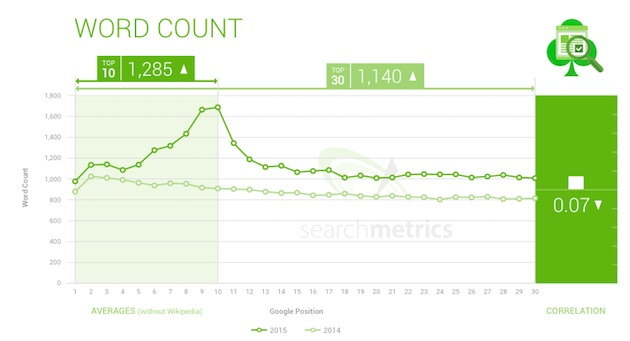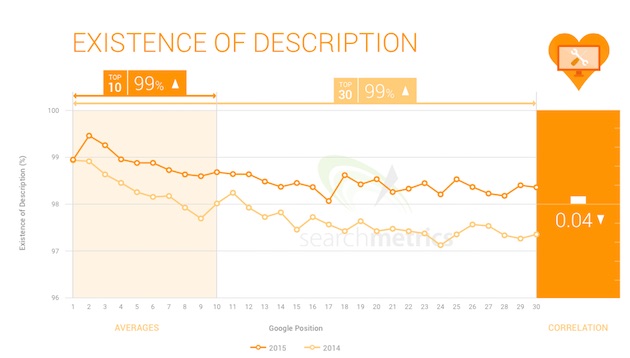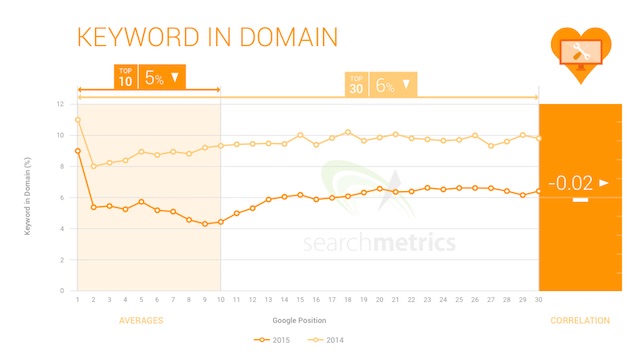Google is now better able to reward high-quality Web content that is relevant to a search query, and less dependent on traditional signals, such as keywords, according to a recent report from Searchmetrics.
The report was based on an analysis of the the top 30 search results for 10,000 relevant keywords and 300,000 websites appearing on Google.com in 2015. The aim of the study, which has been carried out every year since 2012, was to identify the key factors that high-ranking Web pages have in common.
Below are four key search engine optimization (SEO) lessons from the report (and therefore likely key elements of an effective SEO strategy). To see the complete list of correlations to search rankings, check out the full analysis.
1. Comprehensive content is more important than ever
Higher-ranking pages tend to have more words and are better able to give searchers the information they are looking for by covering topics more comprehensively, as well as being easier to read and understand, the analysis found.
Since last year. the average word count on pages in the top 10 search results has increased by around a quarter (rising from 975 to 1,285 words, on average).

2. User experience can influence search rankings
Websites that rank higher tend to be better structured and tend to offer a more user-friendly experience.
For example, there is a positive correlation—albeit relatively slight—between search rankings and responsive design. In other words, the better a page ranks, the more likely it is to have employed responsive Web design.

3. Technical optimization is a basic requirement for high rankings
Technical factors, such as having a title tag in a Web page's underlying source code, and having pages that are quick to load, are standard requirements of an effective SEO strategy that almost all pages in the top 30 results meet.
For example, 99% of sites in the top 30 search results have descriptions.

4. Keywords are becoming increasingly obsolete
The correlation between keywords and high search rankings has decreased across the board.
More and more high-ranking sites are not using the corresponding target keyword in the body, description, or links, the analysis found. Sites are also using keywords less in URLs themselves, with only 6% doing so in the 2015 study.

About the research: The report was based on an analysis of the the top 30 search results for 10,000 relevant keywords and 300,000 websites appearing on Google.com in 2015.




